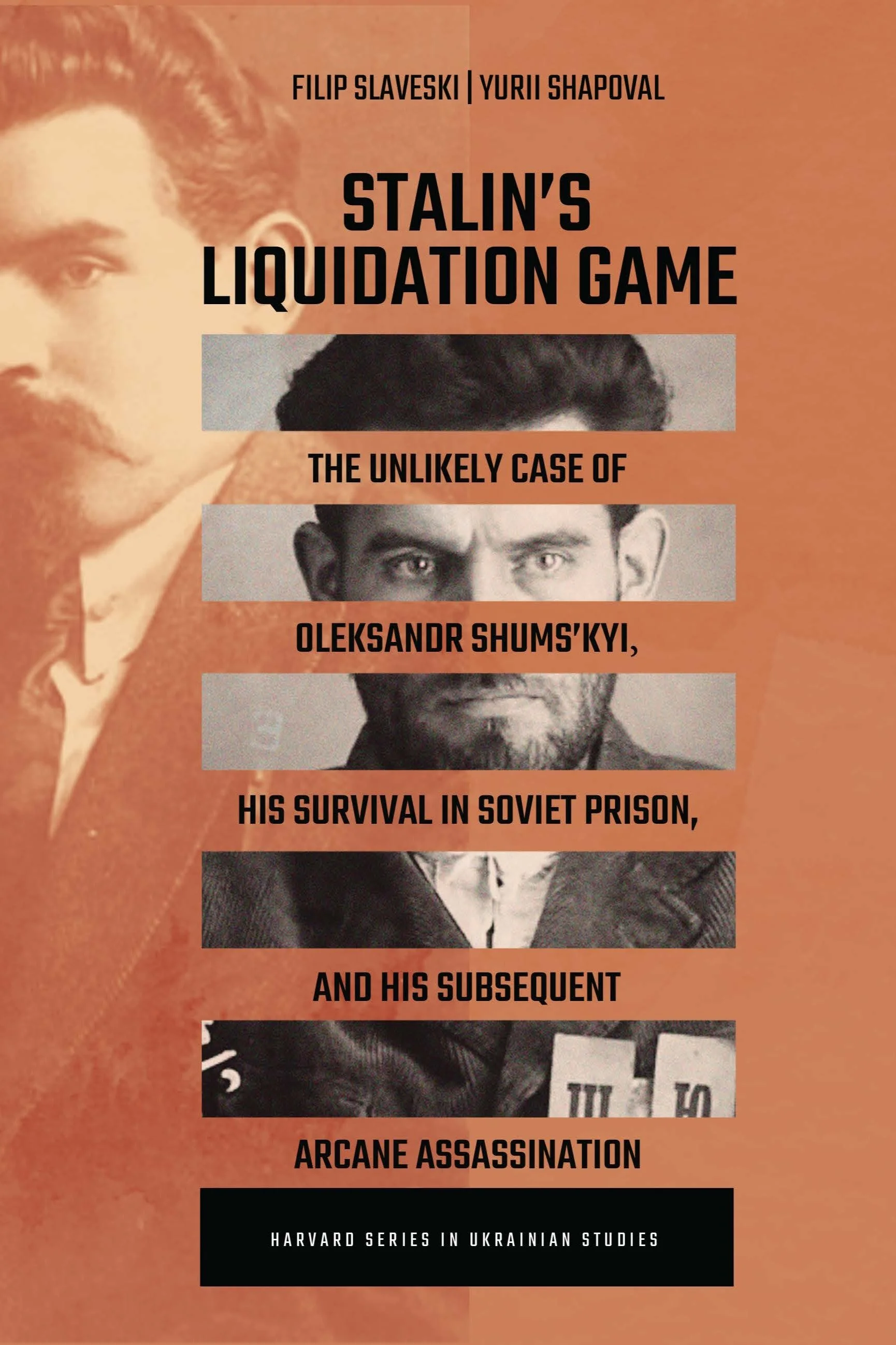Filip Slaveski & Yurii Shapoval
Stalin’s Liquidation Game: The Unlikely Case of Oleksandr Shumskyi, His Survival in Soviet Prison, and His Subsequent Arcane Assassination
Harvard University Press, 2025
Millions of innocent people were arrested in Stalin’s Soviet Union during the 1930s in different waves of mass repression. Under violent interrogation, many were forced to confess to crimes they did not commit. Rather than save their lives, as the interrogators had promised, confession was usually the last step to their execution. Very few of those arrested eventually refused to confess.
Oleksandr Shums´kyi, the Ukrainian Marxist revolutionary, was one of the most important but least known of them. He not only refused to confess but sustained for over a decade a massive protest against his repression and the Stalinist attack on his country, Ukraine. Stalin punished him mercilessly in response, paralyzing him in jail and murdering his wife, but refrained from assassinating him for more than ten years.
This book unravels the Shum´skyi riddle to explain why. In doing so, it opens a new window into understanding the history of Soviet repression and the Russian pathologies toward Ukrainian independence, which help us understand Russia’s current war against Ukraine.
About the Authors
Filip Slaveski is an historian of the Soviet period and author of Remaking Ukraine after World War II: The Clash of Local and Central Soviet Power (Cambridge UP, 2021) and The Soviet Occupation of Germany: Hunger, Mass Violence, and the Struggle for Peace, 1945-1947 (Cambridge UP, 2013). He is a senior lecturer in Russian, Soviet, and East European History at the Australian National University.
Yurii Shapoval is an historian of Ukraine in the Soviet period and the author of numerous books, edited volumes, and journal articles on the history of the Soviet totalitarian regime in Ukraine, the work of the KGB and the Soviet repression system, the Holodomor famine, Ukrainian Insurgent Army (UPA), Ukrainian-Polish relations in the early 20th century, and life and work of prominent Ukrainian political and cultural figures such as Mykhailo Hrushevskyi, Mykola Skrypnyk, Symon Petliura, Serhii Iefremov, Petro Shelest, Oleksandr Shumskyi, Oleksandr Dovzhenko, Ivan Dziuba, and several others. He is professor at the Institute for Political and Ethnic Studies of the National Academy of Sciences of Ukraine.

